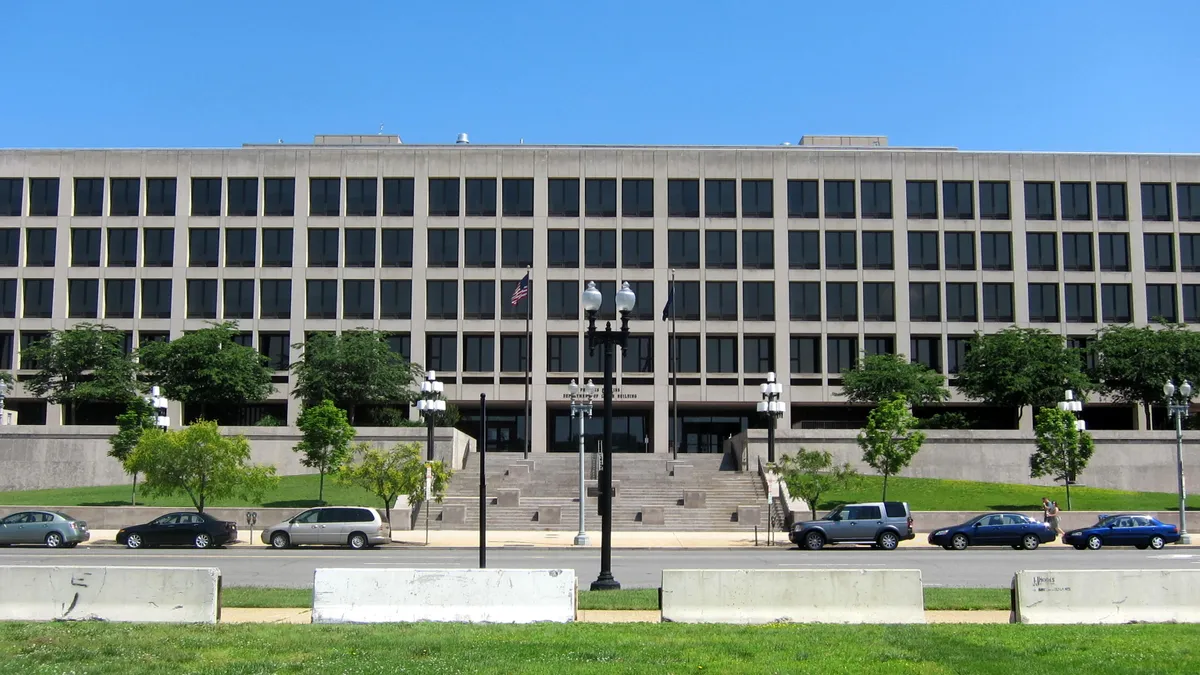Dive Brief:
- The U.S. Department of Labor (DOL) will, for the second time during the Trump adminsitration, propose new tip pooling and tip credit rules Oct. 8, according to a Federal Register announcement.
- The regulation, if finalized, will allow employers who do not take a tip credit against the minimum wage to operate a tip pool that includes employees who don't traditionally receive tips, according to a DOL press release. The rule also formalizes the agency's position on when an employer may take a tip credit for the time an employee in a tipped occupation performs non-tipped work, the agency said.
- Once published in the Federal Register, stakeholders will have 60 days to comment on the Notice of Proposed Rulemaking (NPRM).
Dive Insight:
This area of law has been a roller coaster for stakeholders in recent years. The agency issued regulations in 2011 under the Obama administration outlawing tip pools that included nontipped employees. The rule was aimed at closing a "loophole" that some employers used — paying minimum wage to all workers, enabling them to operate any tip pool they wanted, regardless of whether it met DOL's definition of a "valid" tip pool. Business groups sued and at least two federal appeals courts found the rule invalid. Another court disagreed, and the U.S. Supreme Court declined to resolve the split.
Once the Trump administration took office, it began the process to rescind the Obama-era rules, issuing an NPRM. Bloomberg BNA then reported that the agency omitted an internal analysis from its proposal — one that showed that workers would potentially lose out on billions in gratuities under the rule because it could have allowed employers to keep workers' tips for themselves. The agency's Office of Inspector General then initiated an audit of the Wage and Hour Division's process that is still ongoing, according to the office's most recent report to Congress.
In the meantime, DOL said it didn't have the authority to prohibit employers from keeping workers' tips, leading Congress to pass a law barring such actions and making the concerns moot.
Since then, the secretary of labor resigned following an unrelated controversy. The acting secretary promised a flurry of rulemaking before the end of the year, and the agency seems to be making good on that promise, first finalizing new overtime rules and now taking a second swing at a tip pooling rule just as President Donald Trump's second nominee for labor secretary takes the helm. If this latest proposal is finalized, employers will soon have some clarity on the issue, plus rules widely viewed as employer-friendly.














